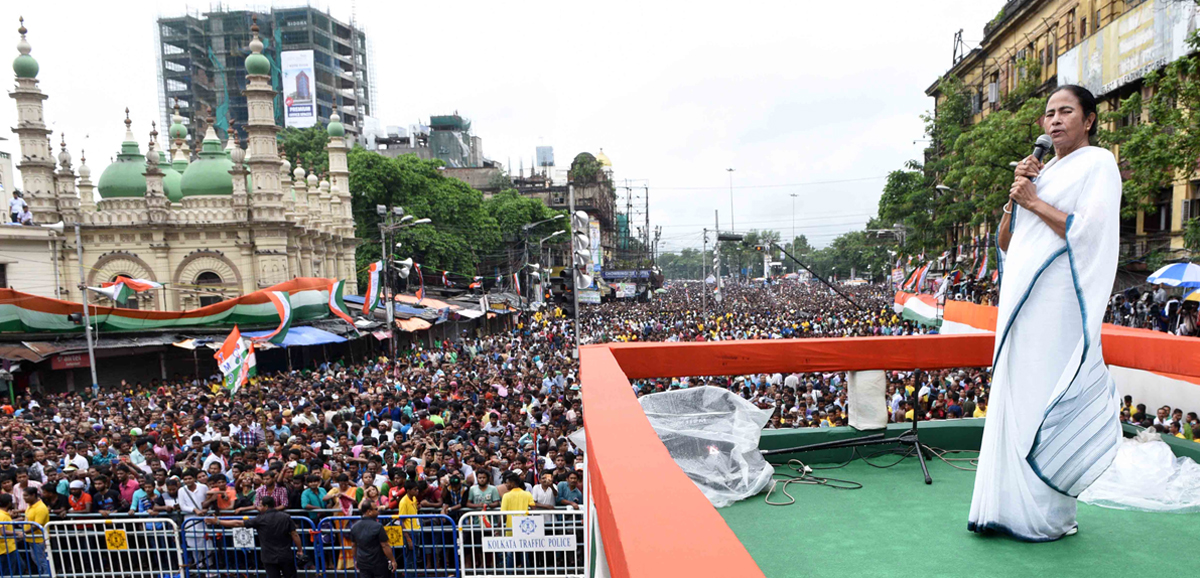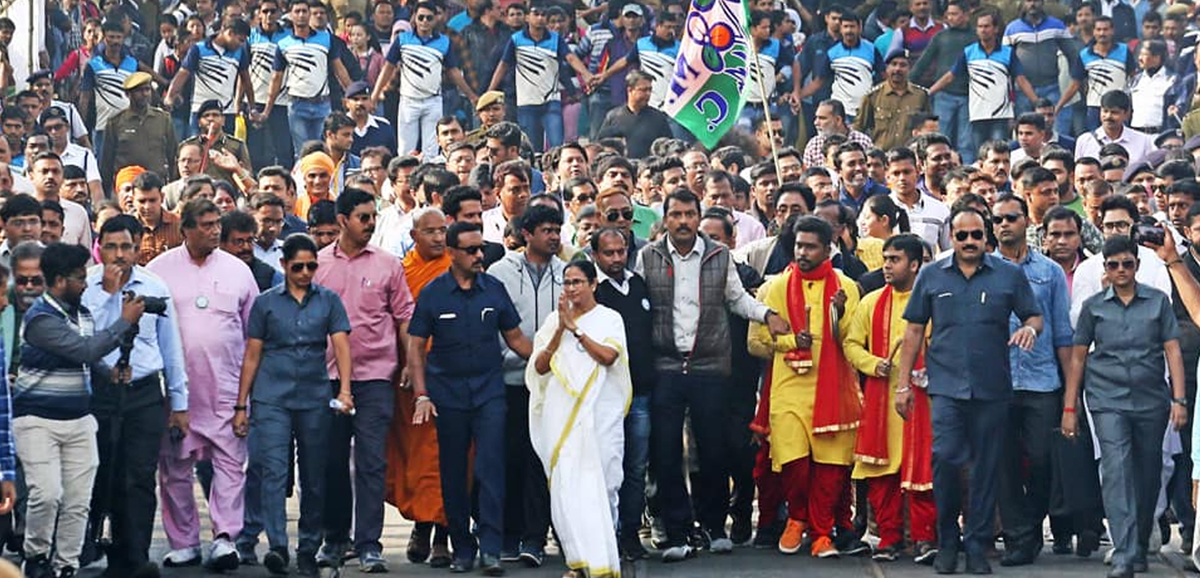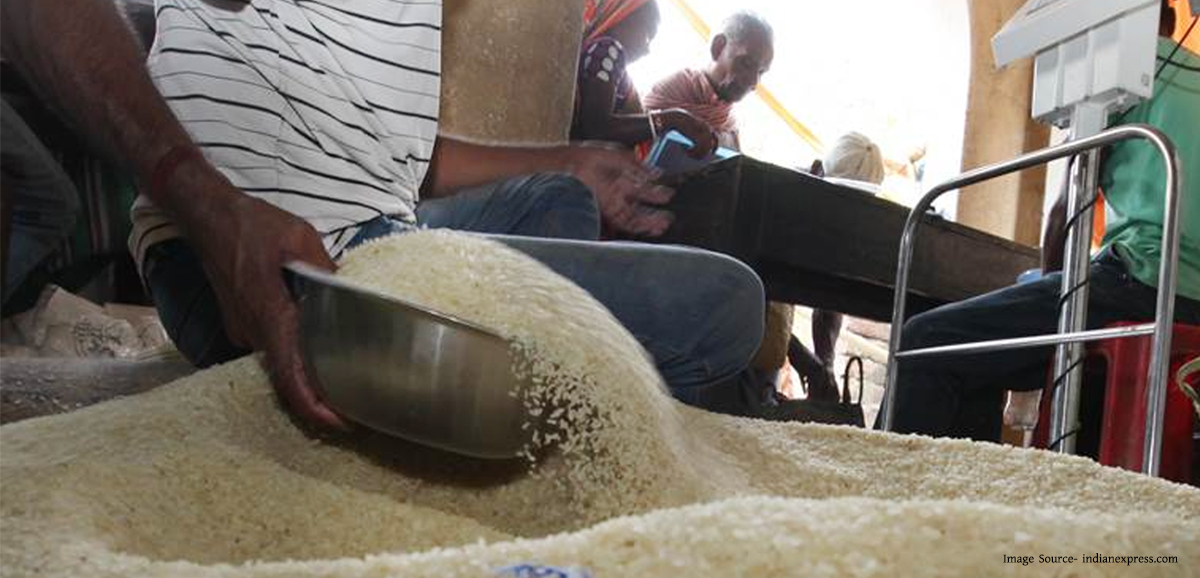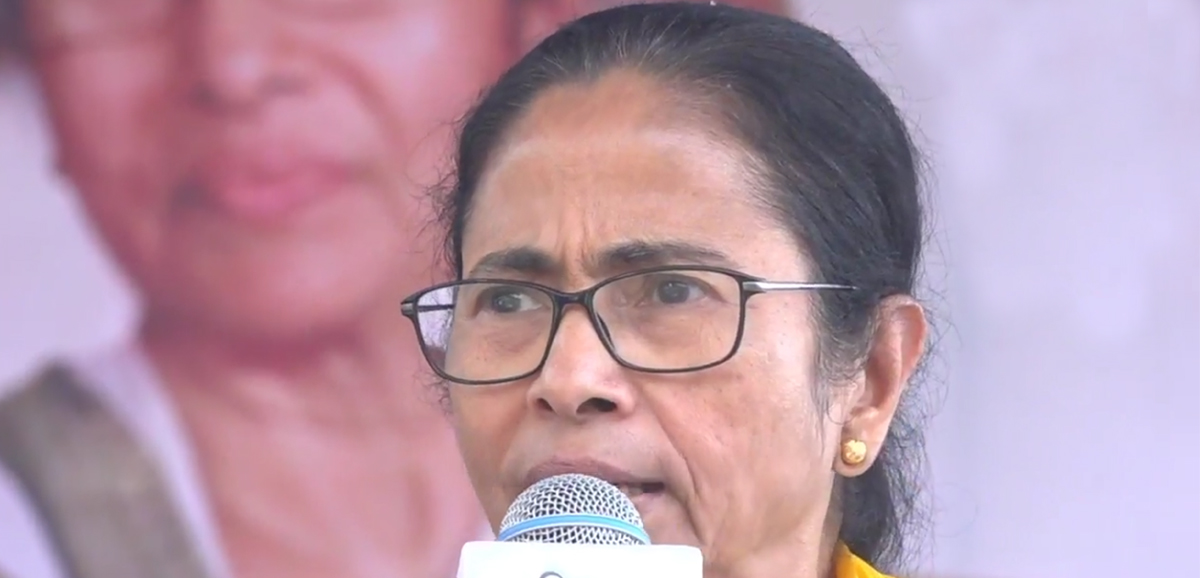It is now 22 years since All India Trinamool Congress was formed. From a small regional party in 1998, when it was formed under the leadership of the firebrand leader, Mamata Banerjee, Trinamool Congress is now a force to reckon with in national politics.
Over these 22 years, there have been numerous memorable moments. Let us take a look at 22 crucial events along the timeline of 22 years, events which have proved to all and sundry that Trinamool Congress always strives to serve the common people, come hell or high weather.
1. Formation of the party
Trinamool Congress was founded on January 1, 1998, and Mamata Banerjee was chosen as the leader of the party. In that year too, the party fought the general elections for the first time and significantly, won eight seats in the Lok Sabha from Bangla.
2. Railways Minister
After the 1999 general election, Mamata Banerjee became the Union Railways Minister, which she remained till 2001.
3. Winning the Kolkata Municipal Corporation (KMC)
In 2000, Trinamool Congress fought in the election for the Kolkata Municipal Corporation for the first time, and won overwhelmingly. For the first time, the Kolkata Mayor was a Trinamool candidate.
4. First Assembly elections
In 2001, Trinamool Congress fought the State Assembly election for the first time, and won in 60 seats.
5. Keshpur and Garbeta massacres
On January 4, 2001, Trinamool workers were massacred in Chhoto Angariya by the workers of CPI(M).
6. Jago Bangla
In 2004, the official mouthpiece of All India Trinamool Congress, Jago Bangla was first published. It is a weekly publication.
7. Singur Movement
In 2006, the then State Government forcibly acquired 1,000 acres of multi-crop agricultural from farmers in Singur for a car factory. Trinamool Congress, led by Mamata Banerjee, started a huge movement to compel the government to return the plots to the unwilling farmers.
8. 26-day hunger strike
Trinamool Congress Chairperson Mamata Banerjee undertook a hunger strike, which lasted for 26 days, against the forcible acquisition of 1,000 acres of farmland in Singur for a car factory by Tata Motors.
9. Nandigram Movement
In a re-run of Singur, in 2007 in Nandigram, the then State Government, tried to forcibly acquire agricultural land. A movement built up, again led by Trinamool Congress. On March 14 of that year, police fired indiscriminately on protesters, killing 14 people.
10. Panchayat election win
In the 2008 Panchayat election, Trinamool Congress put up a great show, forming the Zilla Parishad in East Midnapore and South 24 Parganas districts.
11. Lok Sabha win
In the 2009 general elections, Trinamool Congress won 19 of the 42 Lok Sabha seats from Bangla.
12. Second KMC win
In 2010, Trinamool Congress won the Kolkata Municipal Corporation for a second time, winning 95 of the Corporation’s 141 seats
13. Assembly election win
In 2011, Trinamool Congress won a historic Assembly election, bringing to an end 34 years of Left Front rule. The first Maa-Mati-Manush Government was formed in Bangla under the leadership of Mamata Banerjee.
14. Decimation of Left in Panchayat polls
In 2013, Trinamool Congress won 13 out of 17 Zila Parishads in the State, decimating the Left Front completely.
15. Winning majority of the seats in Lok Sabha from Bangla
Achieving another milestone, in 2014, Trinamool Congress won 34 of the 42 seats in the Lok Sabha election, which is currently the fourth highest in the Lok Sabha.
16. 33% female MPs in Lok Sabha
In the 2014 election for the Lok Sabha, Trinamool Congress hit another milestone – 12 women became Members of Parliament (MP).
17. Victory in Municipal polls
In 2015, Trinamool Congress retained the Kolkata Municipal Corporation, as well as winning 77 other civic body elections.
18. Second Assembly win
In 2016, Trinamool Congress won the Assembly election for a second consecutive time, this time more overwhelmingly than ever. The party, under the strident leadership of Mamata Banerjee, won 211 of the 294 seats, decimating the opposition with the power of the people. Mamata Banerjee became the Chief Minister for a second consecutive term.
19. Singur land returned
After the historic judgment by Supreme Court on August 31, 2006, the land acquisition at Singur was termed unconstitutional. Fulfilling her promise, Mamata Banerjee returned the land deeds to farmers in Singur in September.
20. National party
In recognition of the growing influence that Trinamool Congress is having in national politics, in 2016, the Election Commission recognised the party as a national party. All India Trinamool Congress thus became the seventh national party.
21. Sweeping victory in panchayat elections
Trinamool Congress achieves overwhelming victory in the 2018 panchayat elections, wresting control of all the Zilla Parishads.
22. Protests against NRC and CAB
Trinamool Congress led protests across the State against the divisive and abominable Citizenship (Amendment) Bill and against the Centre’s decision to implement the NRC across the nation.










